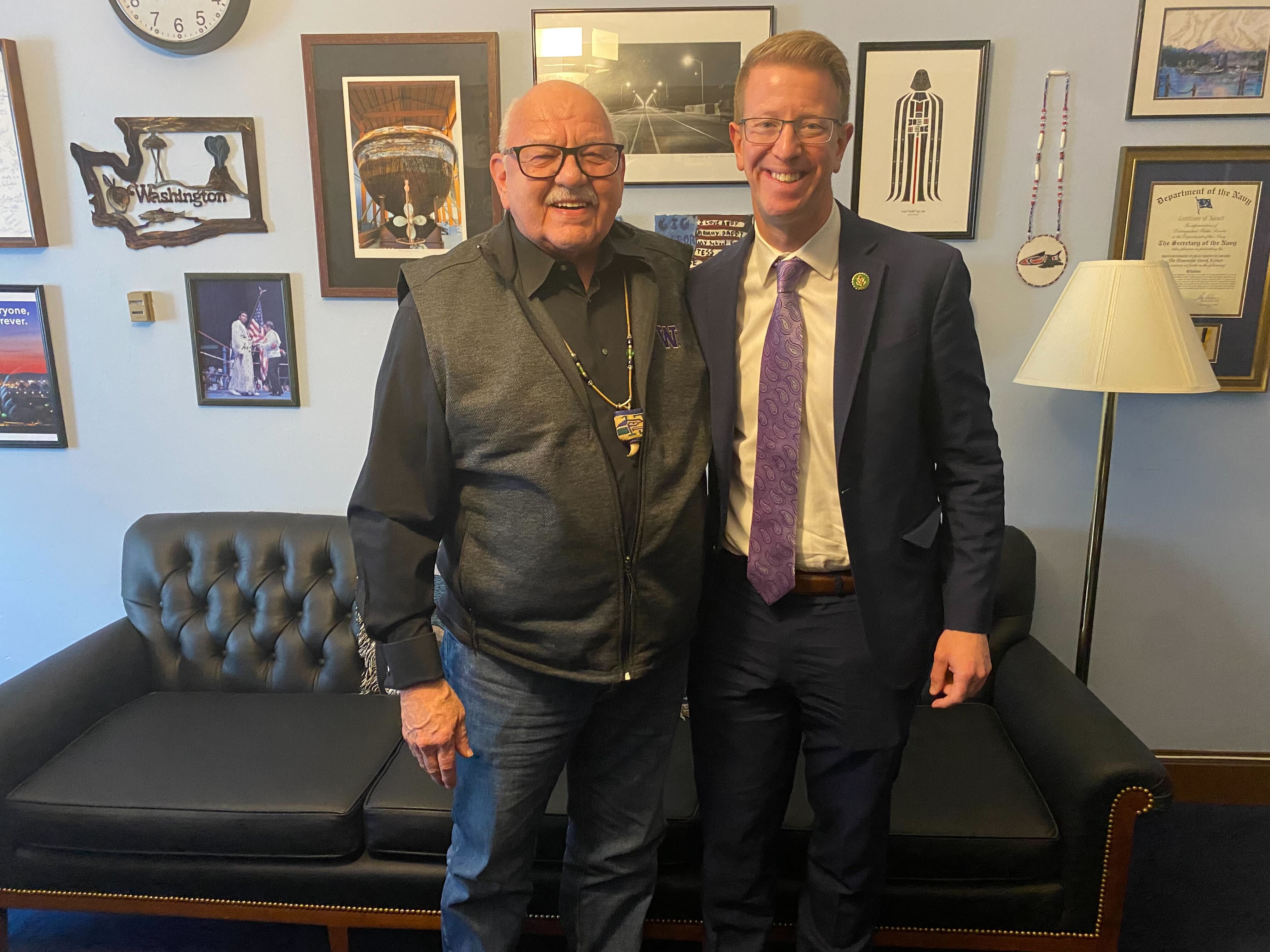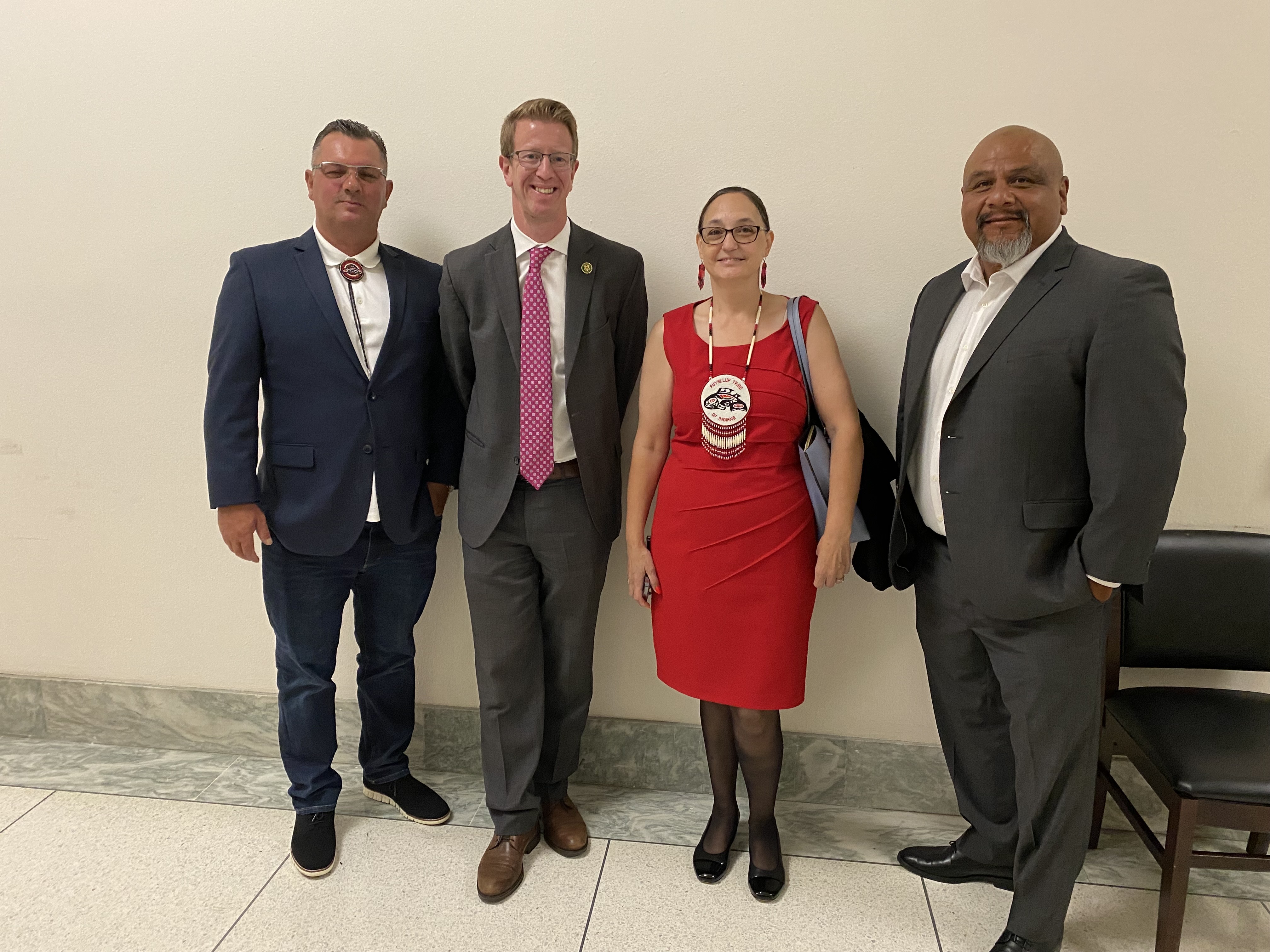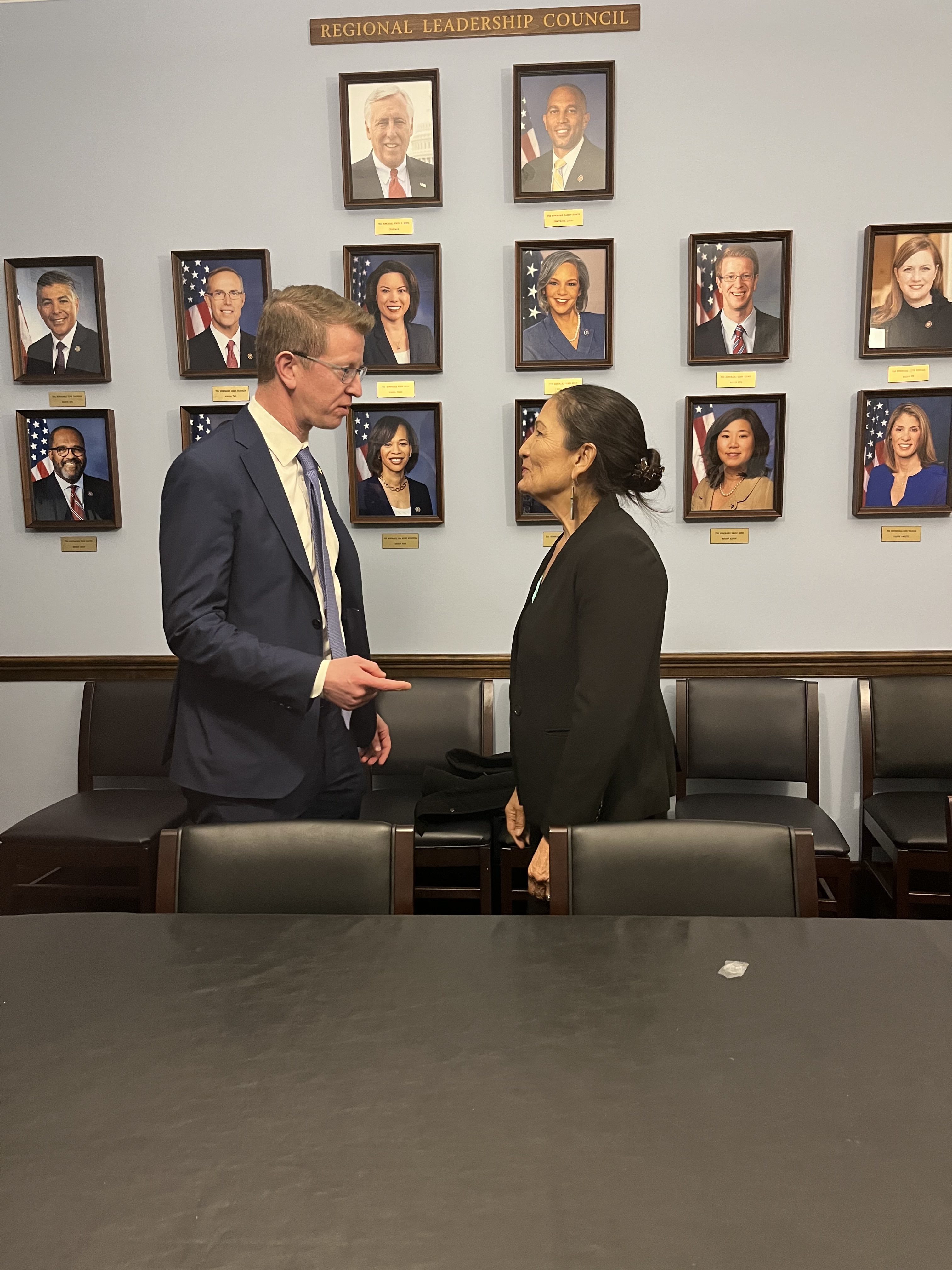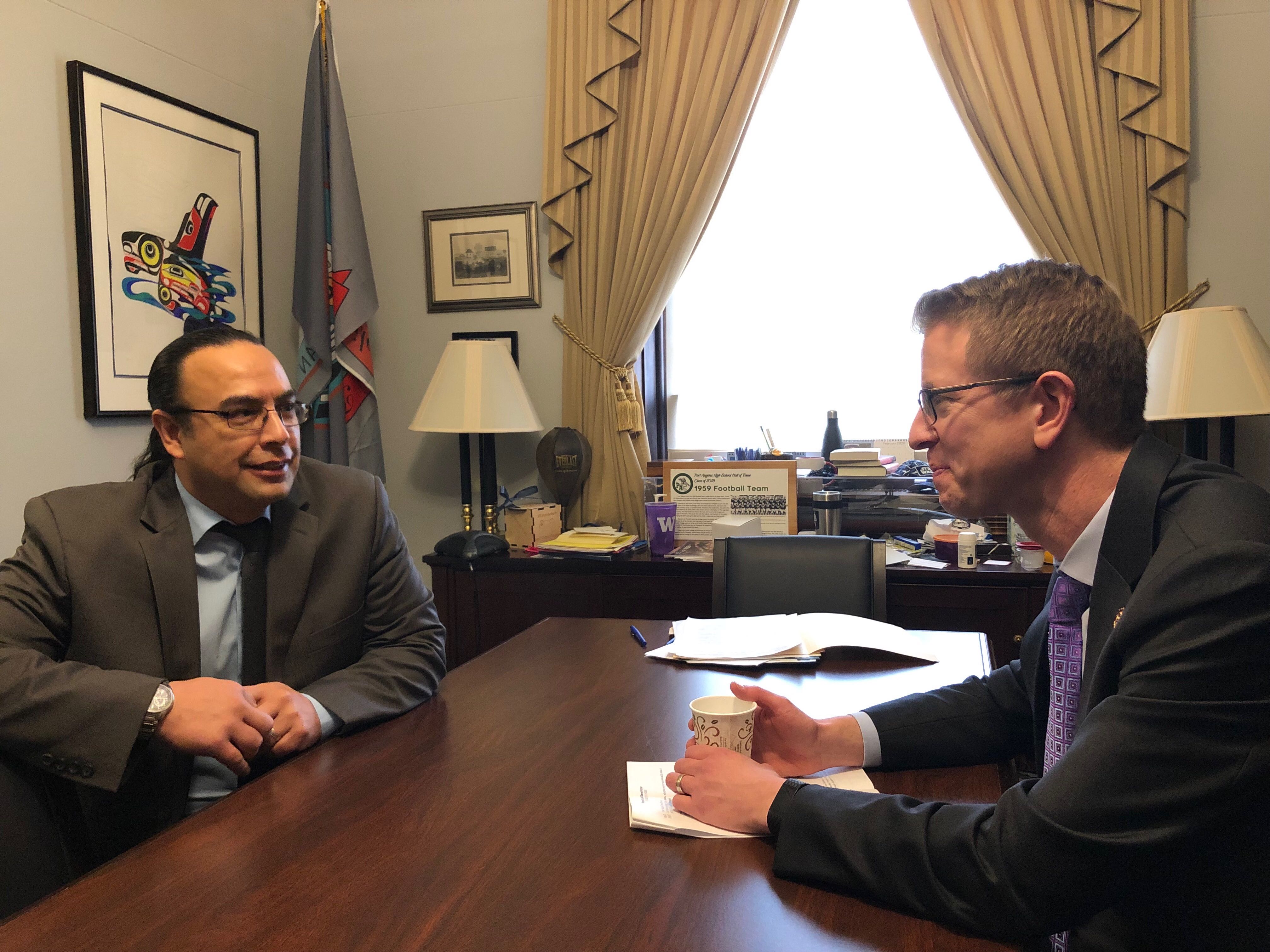Supporting Our Region’s Tribes
Hello Folks –
Similar to my newsletter two weeks ago, I’d like to do something a little different this week and look back on some of the progress we’ve made.
In our region alone, I represent 12 federally recognized Tribes, each of whom has priorities, issues, and projects that deserve the support of the federal government. During my time as your representative, I’ve worked with each of our region’s tribes to ensure that the federal government lives up to its responsibilities.
Living Up to Treaty and Trust Obligations
Too many Native communities lack adequate housing, health facilities, schools, justice centers, roads, telecommunications, water, and other basic infrastructure required to deliver needed support services. Congress and the federal government have a moral and a legal obligation to fulfill the promises made to Indian Country.
In 2022, I introduced the Honoring Promises to Native Nations Act, historic legislation to help reverse the decades-long pattern of systemic funding shortfalls to Native communities and to strengthen federal programs that support Indian County – something that has been long overdue.

My legislation reaffirms the nation-to-nation relationship between the federal government and Tribal Nations, ensuring that tribes in our region and across the country get the funding they need to continue to advance their communities.

Respecting the sovereignty of tribes goes hand in hand with restoring tribal homelands – something I’ve worked diligently to accomplish during my time in Congress. In 2023, I introduced the Puyallup Tribe of Indians Land Into Trust Act, legislation that passed into law earlier this year to restore the Puyallup Tribe’s ancestral homelands and ensure the Tribe can continue to grow economic opportunities and create jobs in our region.
I recently introduced the Lower Elwha Klallam Tribe Project Lands Restoration Act – legislation that will help restore more than 1,000 acres of ancestral land along the Elwha River to the Lower Elwha Klallam Tribe. By taking these lands into trust for the Lower Elwha Klallam Tribe, my new legislation would protect and restore sacred and cultural lands, including the Tribe’s Creation Site.
.jpg)
Finally, I introduced the Quinault Indian Nation Land Transfer Act – legislation that will transfer 72 acres of land to the Bureau of Indian Affairs to be held in trust on behalf of the Quinault Indian Nation. This acreage was once where ancient carvers would slide canoe hulls in the Salmon River to be transported downriver to the main villages for completion and is one of the last remnants of the old growth forest that once dominated the reservation landscape.
Supporting Tribal Resiliency Against Climate Change
Back in 2021, I had the opportunity to join U.S. Interior Secretary Deb Haaland in Taholah for a roundtable with tribal leaders that provided a first-hand look at the impact of the federal government failing to uphold its treaty and trust obligations to Native American communities. While there, Secretary Haaland was able to see the challenges facing coastal tribes – and the threats they face from climate change and the potential of a tsunami.

Tribal communities are on the frontline of the climate crisis, facing threats that jeopardize their safety, cultural heritage, and way of life. We’ve seen homes and community centers in Taholah face water damage. We’ve seen the old Quileute Tribal School in La Push be in the crosshairs of a rising ocean. We’ve seen coastal challenges threaten public safety, public access, and cultural landmarks for these tribes and others.

Each of these communities are working to move to higher ground – and I’m pleased that - through the appropriations process - we have been able to secure funds for their efforts. For example, the Quileute Tribe now has an amazing new school built at higher ground. The Hoh Tribe and Quinault Indian Nation have seen infrastructure investments to enable construction of housing and critical community facilities at higher ground. And in March of this year, we saw nearly $14 million in climate resilience funding awarded to tribes in our neck of the woods, empowering area tribes to implement critical projects that will protect their communities, their homelands, and their heritage, while paving the way for a sustainable future for Indian Country.
Investing in Tribal Projects
As a member of the House Appropriations Committee, I get to support investments for our region that will create jobs and support the communities I serve. As a result, I’ve been able to secure important wins for everything from housing to broadband to infrastructure for our region’s tribes.
Securing Funding for Tribal Housing Projects
Many Native communities lack adequate housing. That’s why I was thrilled to announce earlier this year that the U.S. Department of Housing and Urban Development (HUD) awarded more than $21.5 million in federal funding to support Tribal housing projects in our neck of the woods. That funding is supporting new housing for tribes like the Jamestown S’Klallam Tribe, the Squaxin Island Tribe, and the Confederated Tribes of the Chehalis Reservation – and ensuring that the costs of construction do not fall solely on the backs of tribal community members.
.jpg)
Recently, I was able to secure an additional $800,000 in funding for the Makah Indian Tribe’s Duplex Housing for Essential Workers on the Makah Reservation project, aiming to address vital community needs and ensure the retention and recruitment of essential workers in healthcare, public safety, and education for the community.
I was also able to help secure over $1.5 million in the Suquamish Shores Enetai Project, funding that will help create affordable housing townhomes on the Suquamish Tribe’s reservation.
Investing in Tribal Electrification and Broadband
For far too long, Native American tribes in our region and across the country have struggled to connect to high-speed, affordable, reliable broadband internet. In the fall of 2023, we saw a major investment from the National Telecommunications and Information Administration to support broadband infrastructure deployment projects for the Lower Elwha Klallam Tribe and the Skokomish Indian Tribe. This funding will help these tribes compete for new economic opportunities, empower students to learn, strengthen health outcomes by enabling tele-health opportunities, and bridge the digital divide.
.jpg)
Similarly, every winter we have seen many families struggle to pay their heating and energy bills, particularly in Tribal communities. That’s why I worked to help to secure more than $403,000 in funding for tribes in our region to lower energy costs and help families heat their homes in the winter. I’ve also secured funding for the Quinault Indian Nation to install solar power generation and electricity infrastructure in Taholah, building reliability and energy independence for the nearly 500 new and existing homes in the remote village.
And there’s plenty more I could share. But the most important thing I want to leave you with today is that it has been among my greatest honors to be able to champion the needs of our region’s tribes. I’m conscious that our region, its economy, and our environment are stronger and more resilient when we work together to support each other.
OK – that’s it for now, folks. As always, I’m honored to represent you.
Sincerely,
Derek

